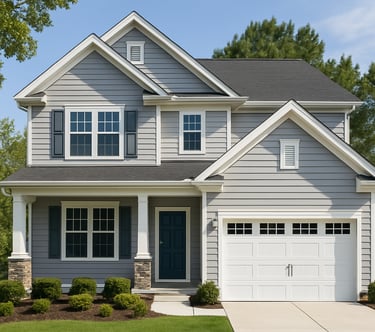Keeping Great Tenants: The Secret to Long-Term Property Success


Image: ChatGPT.com
Introduction
In property management, finding a good tenant is only half the battle—keeping them is where real success happens. Every time a tenant moves out, landlords face costly repairs, vacancy losses, and marketing expenses. The goal isn’t just to fill a unit; it’s to create an experience tenants don’t want to leave.
1. Start with a Strong First Impression
The tenant relationship begins the moment they see your listing. A well-written description, clear photos, and quick communication set the tone for professionalism.
At move-in, provide:
A clean, well-maintained home.
A printed welcome guide (with key contacts, trash days, and local info).
A short walk-through to address any concerns right away.
That first week shapes how tenants view you as a landlord for the rest of the lease.
2. Communicate Clearly and Often
Tenants value responsiveness more than perfection.
Set clear expectations:
Use text or email for maintenance updates.
Reply within 24 hours whenever possible.
Be proactive—check in after storms, repairs, or utility outages.
When tenants feel you care, they’ll treat the property with more respect.
3. Fix Problems Fast
A delayed repair can make tenants question your reliability. Quick action not only prevents bigger issues but shows professionalism.
Even if you can’t fix something immediately, acknowledge the issue and give a realistic timeline. That transparency builds trust—and keeps tenants renewing leases.
4. Offer Small but Meaningful Perks
Little gestures can have a big impact:
Send a “Thank You for Renewing” card.
Give small seasonal gifts like air filters or local coffee shop vouchers.
Offer a small rent discount for early renewal or long-term commitments.
These touches make tenants feel valued and reduce turnover dramatically.
5. Review Your Rent Increases Carefully
Raising rent is necessary, but do it with strategy. A fair, modest increase (2–4%) paired with a maintenance upgrade or amenity improvement feels justified.
If your goal is long-term stability, prioritize consistent occupancy over squeezing every dollar from rent.
6. Conduct Exit Interviews When Tenants Leave
When tenants do move, ask why. Was it price, maintenance, location, or something else? Those insights are invaluable for improving your management strategy—and avoiding the same issue with the next tenant.
Conclusion
Retaining good tenants saves time, money, and stress. By being proactive, responsive, and fair, landlords create homes where tenants feel respected—and stay longer. Over time, this approach builds a stronger reputation and more predictable profits.
For more information on properties located in Harford & Baltimore County, MD, click here.


